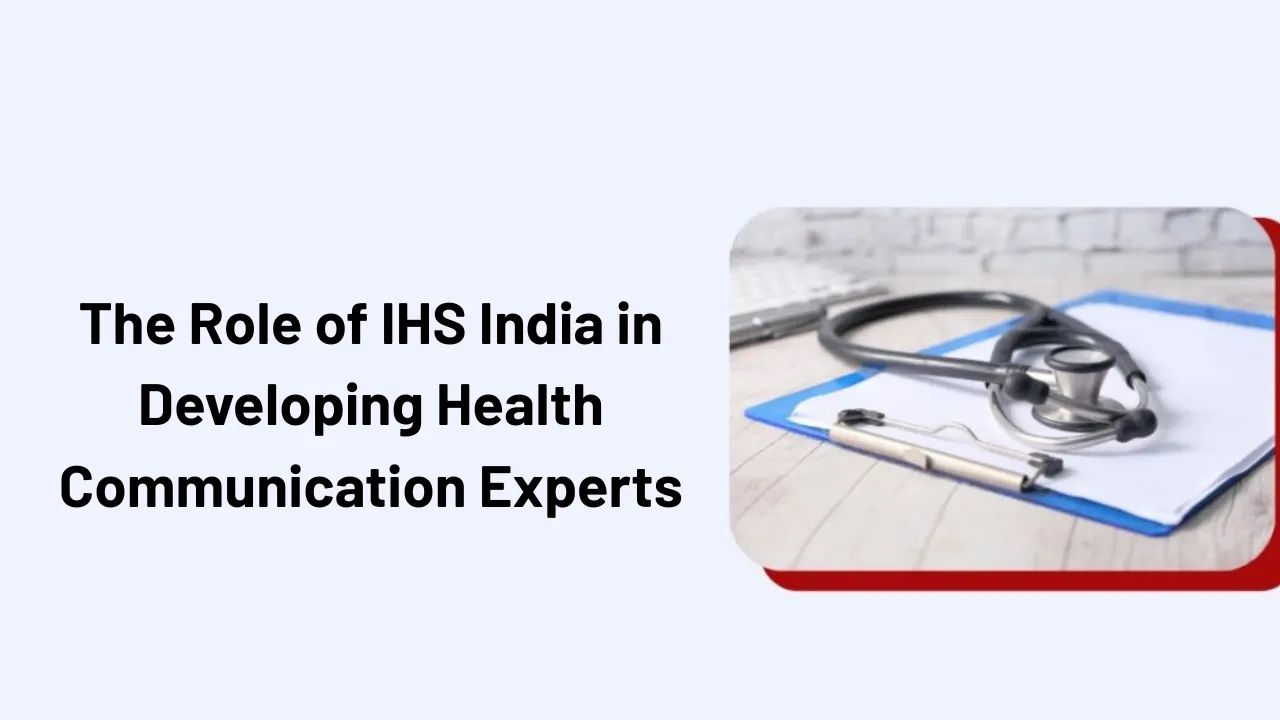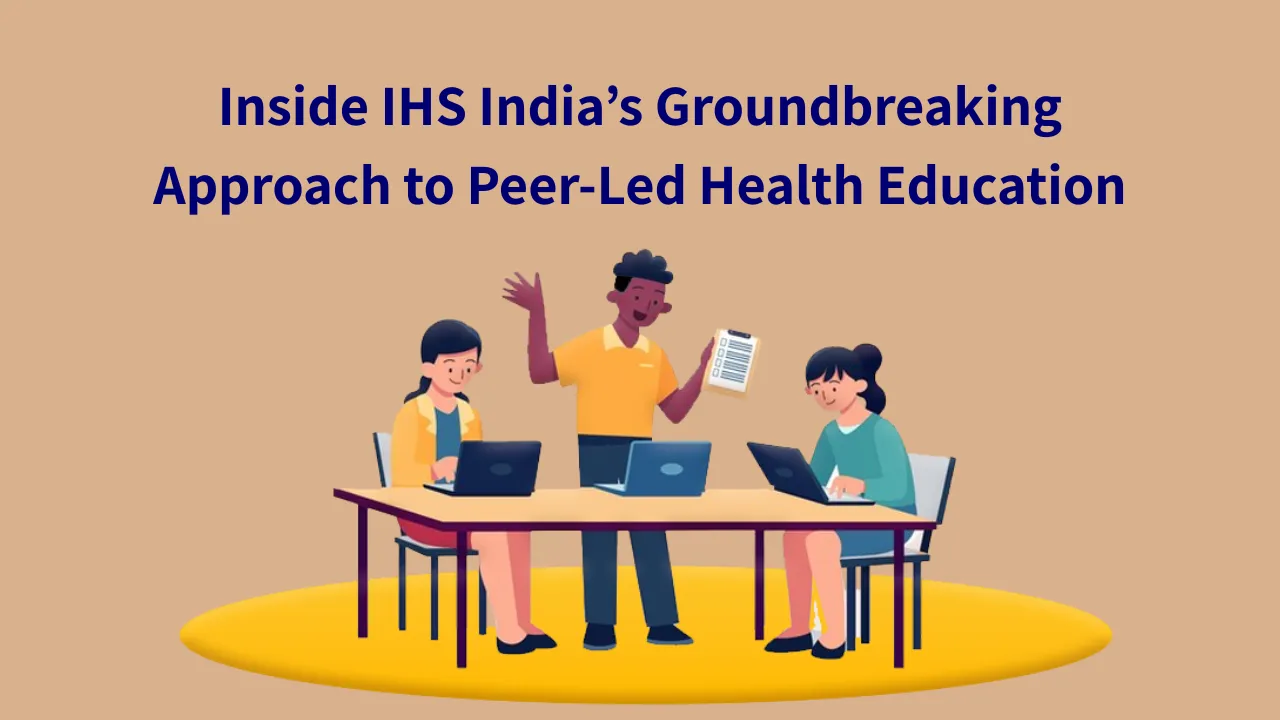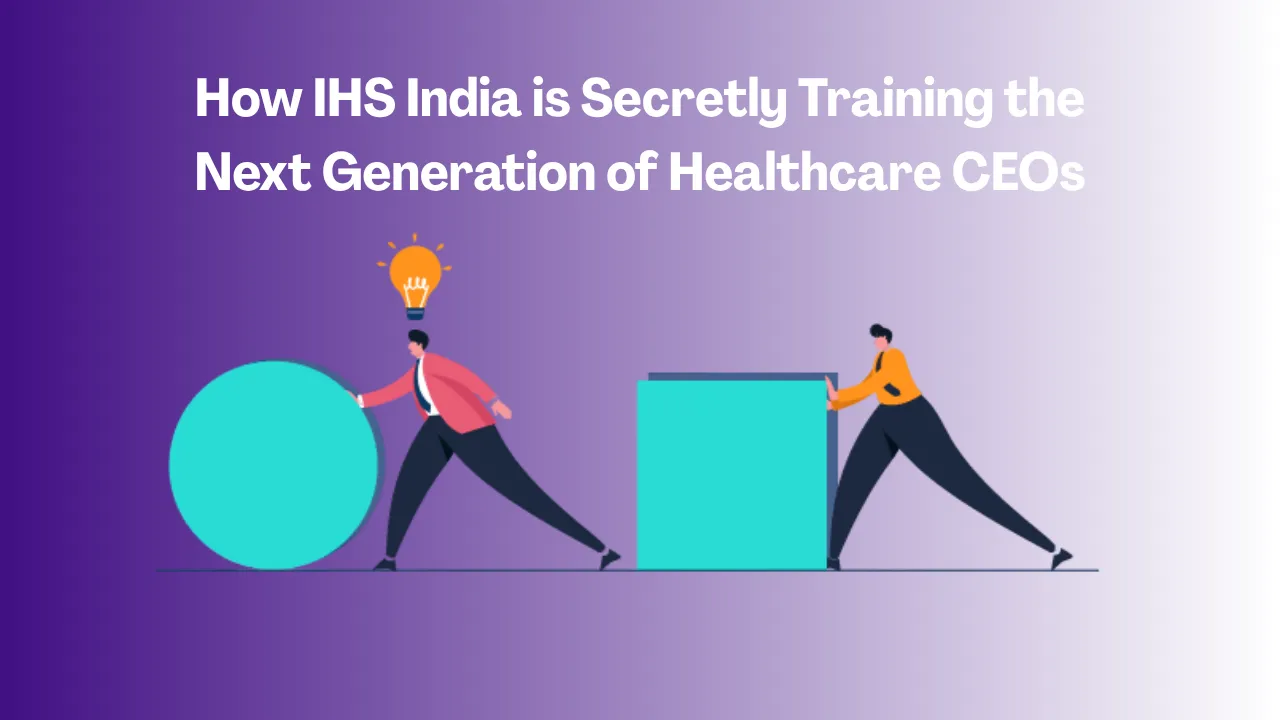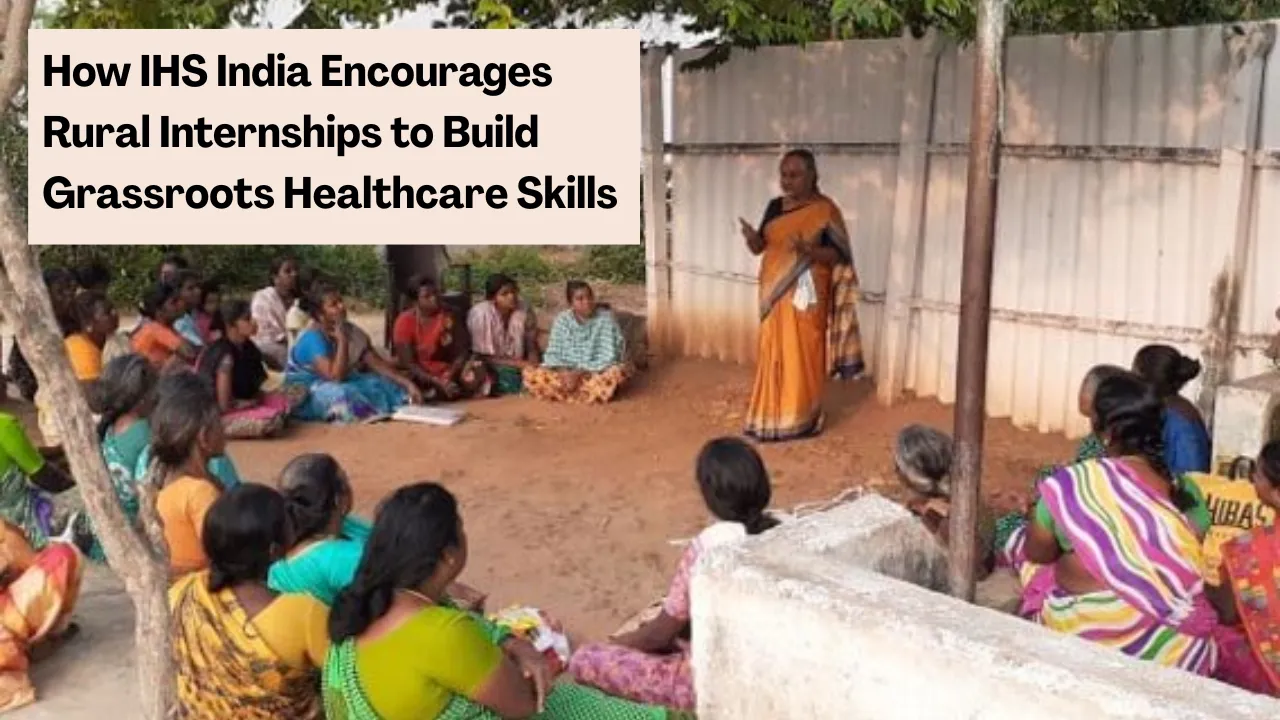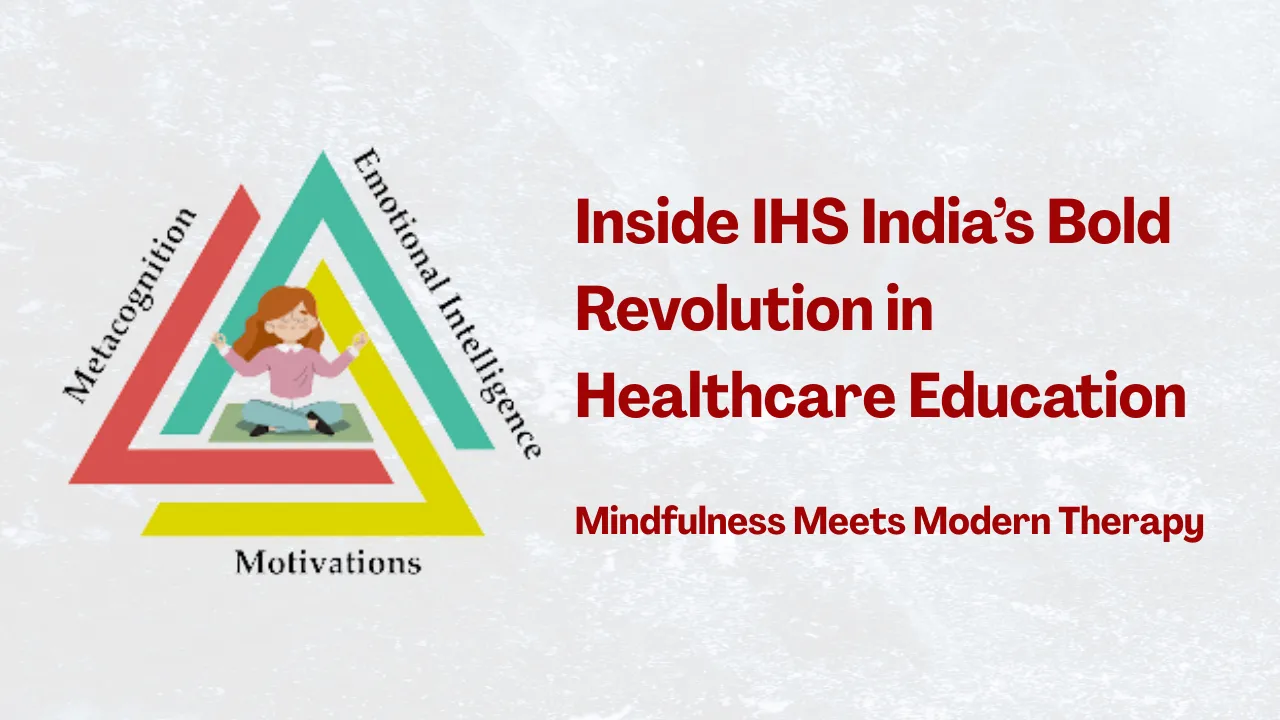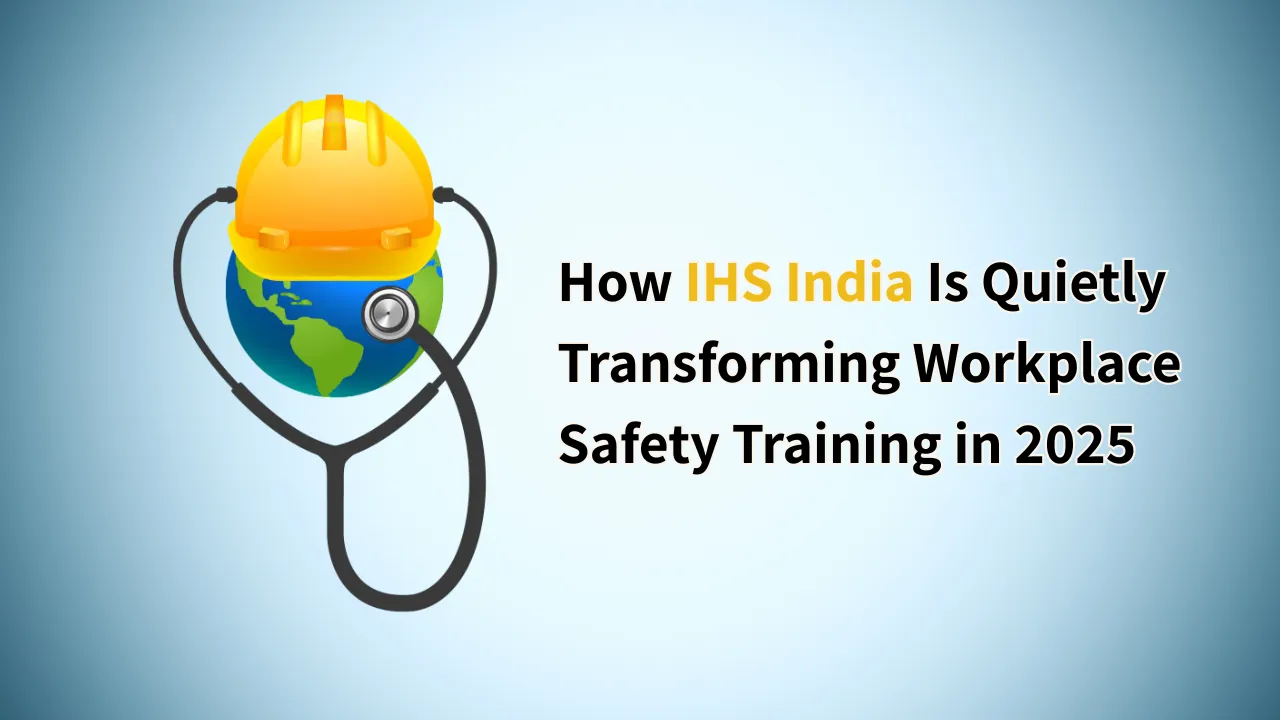IHS India stands as a crucial institution in India’s growing healthcare ecosystem, shaping professionals who are the voices behind effective health messaging. In today’s health environment, where misinformation can travel faster than truth, the need for skilled communicators has never been greater. As healthcare becomes more complex, it’s not enough for medical interventions to exist—they need to be understood. This is where IHS India plays a pivotal role.
This article examines how IHS India develops health communication experts to bridge the gap between scientific knowledge and public understanding. We’ll look at how the institution combines theory with practical exposure, the structure of its programs, and its influence on the larger healthcare communication landscape. Whether you’re an aspiring student, a public health professional, or simply curious about the role of communication in healthcare, this article offers a complete insight.
IHS India: Building a Skilled Health Communication Workforce
IHS India focuses on developing professionals who can simplify and spread accurate health messages to diverse populations. With a curriculum centered around health communication training, health literacy, and media engagement, the institute trains individuals to become the backbone of health education and awareness campaigns. The programs encourage students to work on real-world issues, combining community interaction with academic instruction. This hands-on approach enables graduates to make meaningful contributions in areas such as health promotion, patient communication, and national awareness drives. The emphasis on both digital media and on-ground outreach makes IHS India’s approach comprehensive and impactful in the long term.
Overview of IHS India’s Role in Health Communication Development
| Aspect | Details |
| Focus Area | Health communication, public health education, behavioral change strategies |
| Training Methods | Classroom teaching, fieldwork, digital campaigns |
| Career Pathways | Hospitals, NGOs, media, government health departments |
| Key Strength | Practical training with community involvement |
| Student Impact | Real-world contribution to health awareness and education |
Why Health Communication Matters
Communication is at the heart of healthcare. While medical advancements save lives, their benefits can only be fully realized when people understand and trust the information they receive. Poor communication often leads to misconceptions, fear, or resistance to treatment. In contrast, clear messaging improves compliance, supports preventive action, and fosters healthier communities.
At the center of this shift is health communication training—a discipline that empowers professionals to translate complex health data into relatable, actionable messages. Institutions like IHS India are actively filling this gap by training specialists who can work across media, policy, and frontline healthcare environments.
The Vision of IHS India
IHS India was founded with a mission to strengthen India’s public health system through education and innovation in communication. Its vision is to produce experts who don’t just understand the science of health but also the art of communication. This dual strength allows graduates to speak to patients, policy-makers, and the public with clarity and cultural sensitivity.
Through research-led teaching, collaboration with government and non-government bodies, and a sharp focus on healthcare communication, IHS India shapes professionals ready to tackle issues ranging from pandemic responses to rural health challenges. These efforts are crucial in improving health literacy among India’s diverse population.
Curriculum that Builds Experts
The academic structure at IHS India stands out for its practical approach. It offers a dynamic curriculum that blends public health education, media training, and behavioral psychology. Students learn how to craft messages for different audiences—urban, rural, educated, or under-informed.
Courses cover essentials such as writing for health media, campaign planning, digital health communication, and interpersonal skills. The focus is always on real-world relevance—how to lead effective health promotion campaigns, how to respond during health emergencies, and how to ensure information reaches the last mile.
Additionally, students undergo internships and community outreach programs to apply classroom knowledge directly, often contributing to health campaign strategies that improve real health outcomes.
Career Opportunities for Graduates
Graduates of IHS India are in high demand due to their unique blend of public health knowledge and communication skills. The roles they step into are diverse and impactful, ranging from healthcare education specialists in hospitals to outreach coordinators in NGOs and content strategists in media houses.
Many work in government programs where health awareness plays a key role, such as maternal health, nutrition campaigns, and vaccination drives. Others take up roles in pharmaceutical companies, designing materials that improve patient compliance and education. Some even pursue research, policy, or entrepreneurship in health-related media.
With India’s ongoing healthcare transformation, the value of such professionals is only expected to grow.
Real-World Impact
Students and alumni from IHS India have made their mark on health initiatives across India. From working on anti-smoking campaigns to creating social media strategies for vaccine awareness, their work ensures that critical health messages don’t just stay on paper but reach people’s lives.
Their ability to understand audience behavior and craft messages that resonate has helped transform how communities view health. Whether it’s through street plays, local radio programs, digital content, or community meetings, IHS-trained professionals ensure that healthcare education in India is inclusive and effective.
Two Key Roles of IHS India in Health Communication
- Training Programs Focused on Practical Communication Skills
Through real-time workshops, digital storytelling, and collaborative learning, IHS India prepares students to design effective content across print, broadcast, and online platforms, making health information relatable and actionable. - Collaboration with Health Organizations for Field Experience
Partnerships with hospitals, community health centers, and NGOs offer students immersive exposure to real-world challenges. These experiences help them build strategies tailored to local needs, increasing their problem-solving skills and job readiness.
Supporting the Public Health System
Health communication is a cornerstone of public health. During health crises like the COVID-19 pandemic, clear and trusted information was as vital as medical treatment. IHS India has actively contributed to shaping communicators who step in during such times, ensuring people receive the right information through the right channels.
Their graduates support various public health projects—developing educational material, conducting workshops, and even training frontline workers on how to speak with communities. This support builds long-term health awareness and strengthens community trust in healthcare systems.
The Role of Technology in Health Communication
Modern health messaging demands a strong digital presence. IHS India equips students with skills in using social media, content management systems, video editing tools, and data analytics to craft and measure the impact of digital campaigns.
Understanding platform-specific engagement is key—what works on Instagram may not work on WhatsApp. The program at IHS ensures students master these tools, allowing them to build data-backed, compelling campaigns. This tech-driven approach enhances outreach and makes students adaptable to fast-changing media trends in health communication.
FAQs
What does IHS India specialize in?
IHS India specializes in training professionals in health communication who can simplify and share medical information clearly and effectively.
Are there opportunities for fieldwork at IHS India?
Yes, the programs at IHS India include internships and field placements that allow students to gain real-world experience in health education and promotion.
What types of careers can graduates pursue?
Graduates can work in hospitals, NGOs, government health departments, media outlets, and research organizations focusing on public health awareness.
How does IHS India stay relevant in the digital age?
The curriculum includes digital tools and media strategies, training students to create and distribute health content effectively through modern platforms.
Is the training at IHS India suitable for rural outreach?
Yes, IHS India emphasizes communication strategies that are culturally sensitive and adapted for both urban and rural populations, making their training highly relevant for diverse communities.
Conclusion
IHS India is much more than an academic institution—it is a builder of change-makers in the field of healthcare communication. By producing skilled professionals who can interpret, personalize, and deliver accurate health messages, it contributes significantly to India’s public health goals. With its strong curriculum, real-world exposure, and future-focused mindset, IHS India continues to empower a new generation of communicators who not only inform but inspire action.
If you’re interested in making a real difference in public health, consider exploring how you can be part of this impactful journey with IHS India. Have thoughts on the role of communication in healthcare? Join the conversation in the comments and explore our related content on public health careers and education paths.
